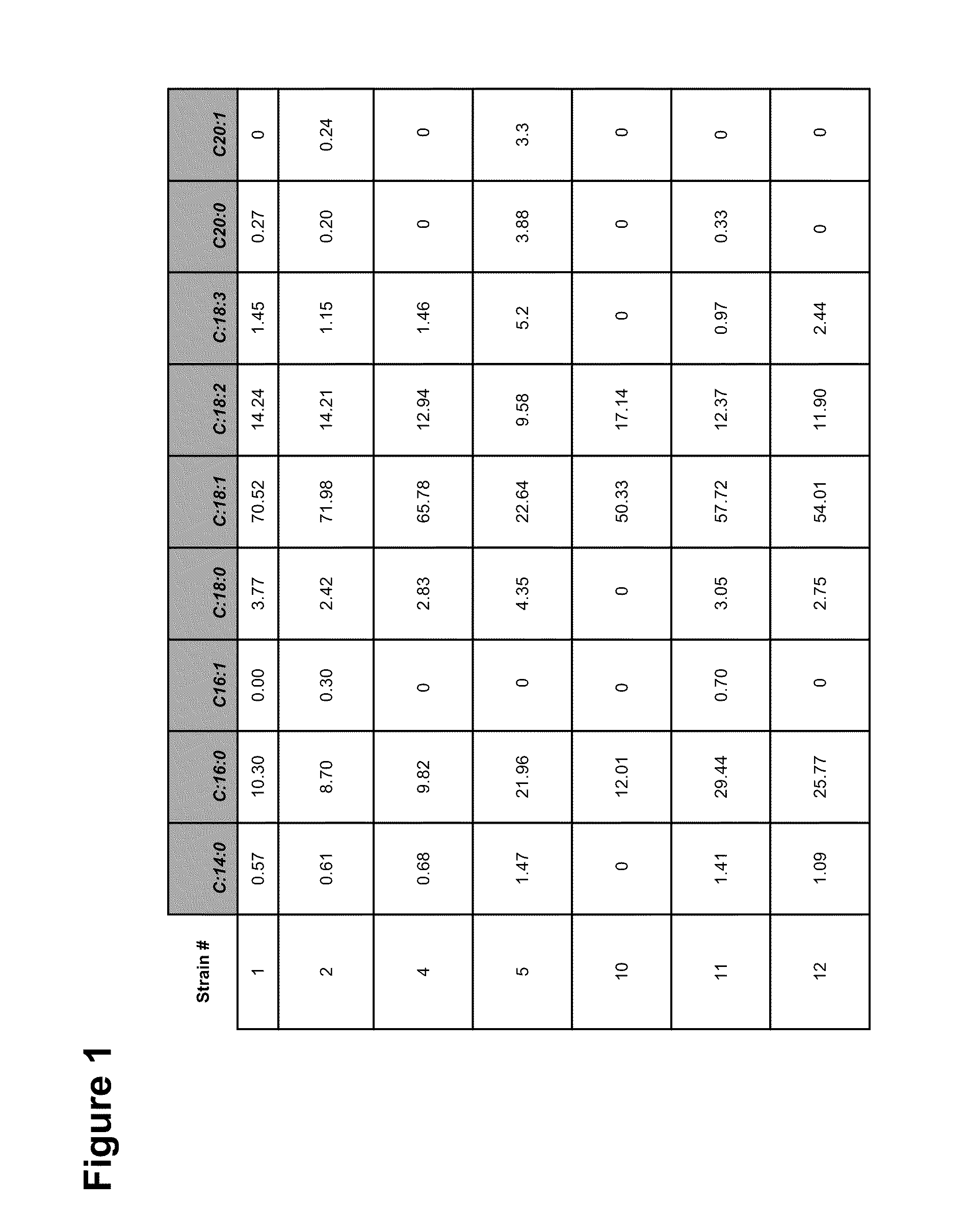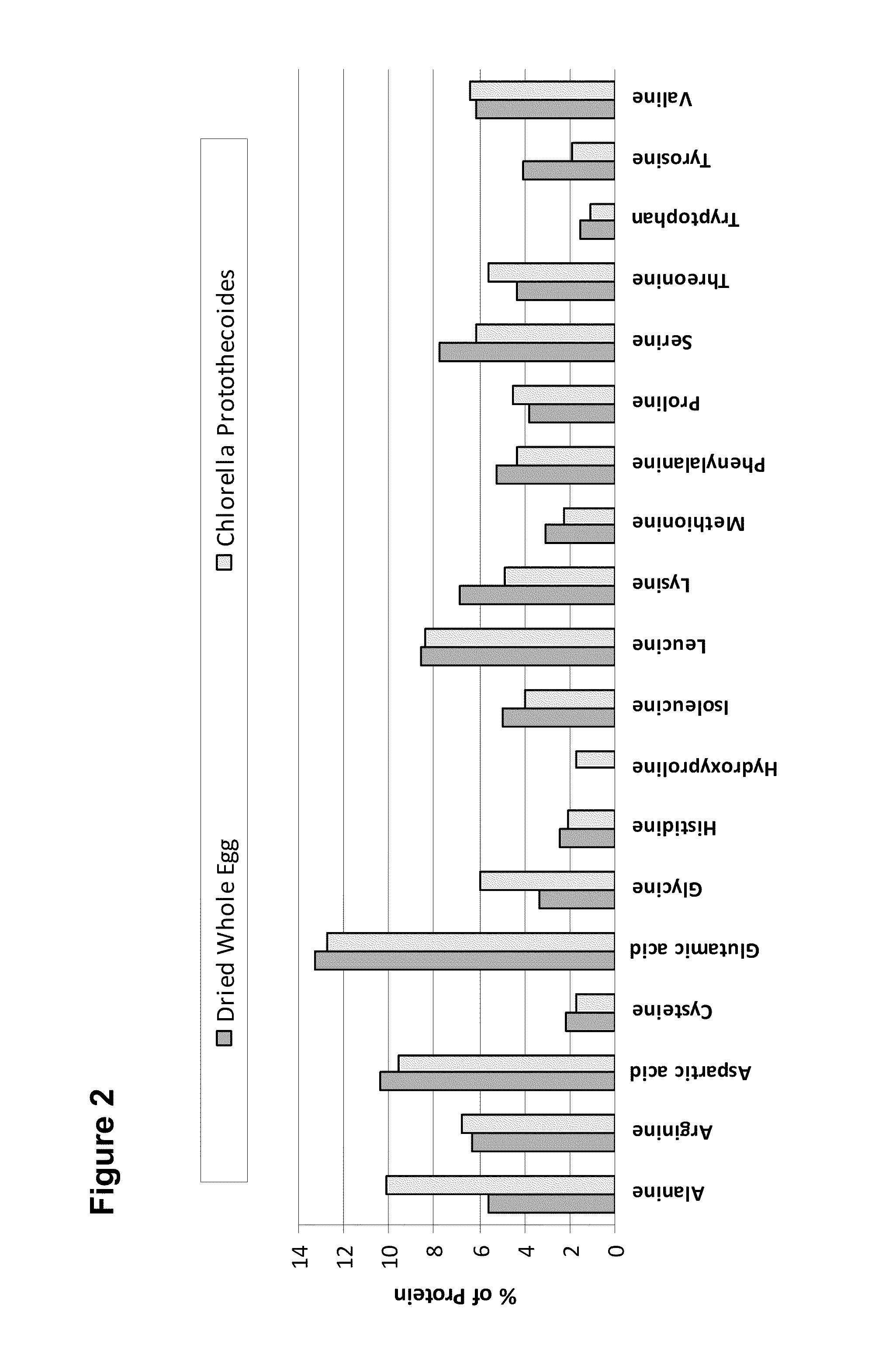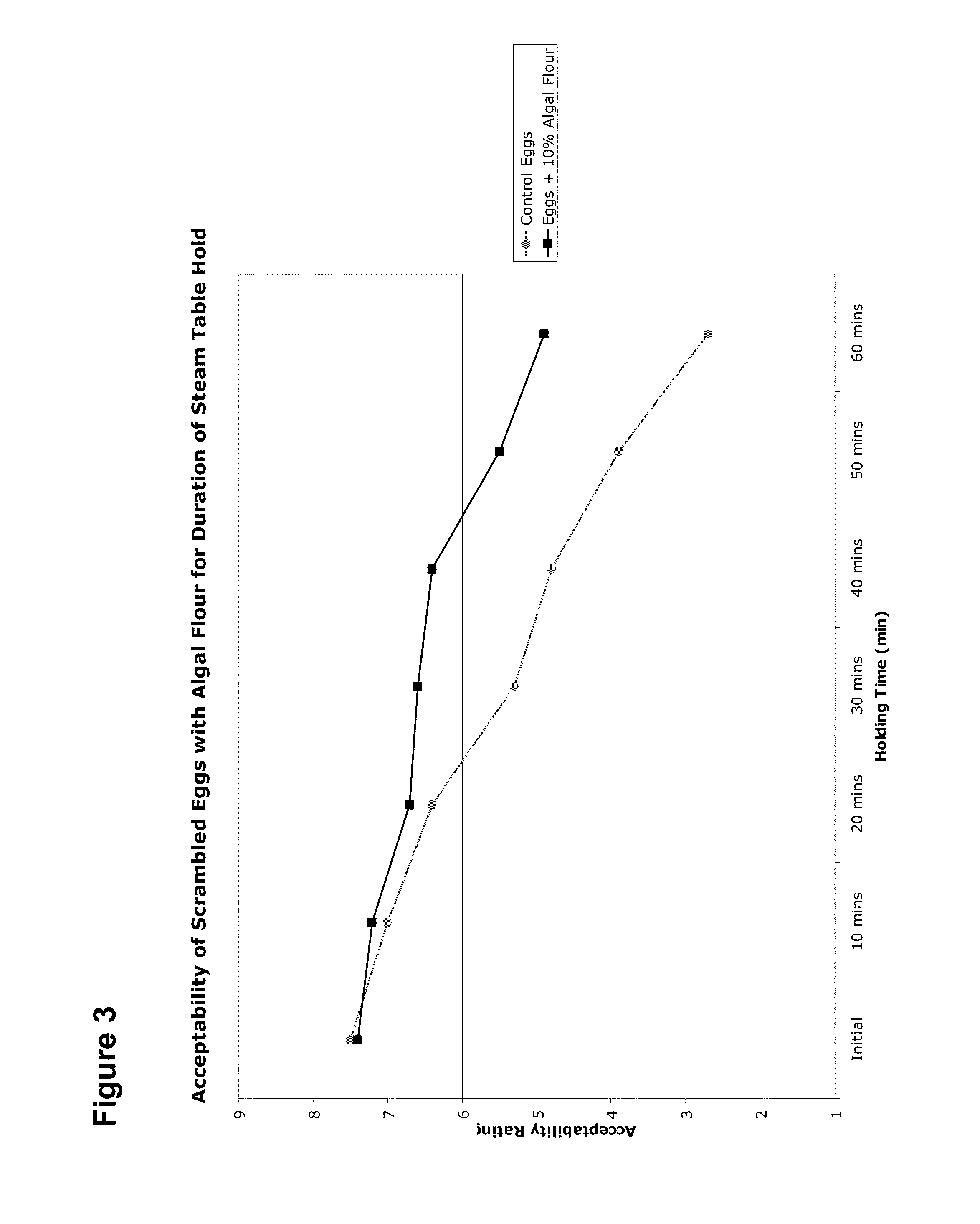High Protein and High Fiber Algal Food Materials
a technology of high protein and high fiber, applied in the field of microbiology, food preparation, human and animal nutrition, can solve the problems of unrealized algae food product promise, strong unpleasant taste, deep green color, etc., and achieve the effect of enhancing the structural properties of foods
- Summary
- Abstract
- Description
- Claims
- Application Information
AI Technical Summary
Problems solved by technology
Method used
Image
Examples
example 1
Cultivation of Microalgae to Achieve High Oil Content
[0254]Microalgae strains were cultivated in shake flasks with a goal to achieve over 20% of oil by dry cell weight. The flask media used was as follows: K2HPO4: 4.2 g / L, NaH2PO4: 3.1 g / L, MgSO4.7H2O: 0.24 g / L, Citric Acid monohydrate: 0.25 g / L, CaCl2 2H2O: 0.025 g / L, yeast extract: 2 g / L, and 2% glucose. Cryopreserved cells were thawed at room temperature and 500 ul of cells were added to 4.5 ml of medium and grown for 7 days at 28° C. with agitation (200 rpm) in a 6-well plate. Dry cell weights were determined by centrifuging 1 ml of culture at 14,000 rpm for 5 min in a pre-weighed Eppendorf tube. The culture supernatant was discarded and the resulting cell pellet washed with 1 ml of deionized water. The culture was again centrifuged, the supernatant discarded, and the cell pellets placed at −80° C. until frozen. Samples were then lyophyllized for 24 hrs and dry cell weights calculated. For determination of total lipid in culture...
example 2
[0257]Three fermentation processes were performed with three different media formulations with the goal of generating algal biomass with high oil content. The first formulation (Media 1) was based on medium described in Wu et al. (1994 Science in China, vol. 37, No. 3, pp. 326-335) and consisted of per liter: KH2PO4, 0.7 g; K2HPO4, 0.3 g; MgSO4-7H2O, 0.3 g; FeSO4.7H2O, 3 mg; thiamine hydrochloride, 10 μg; glucose, 20 g; glycine, 0.1 g; H3BO3, 2.9 mg; MnCl2-4H2O, 1.8 mg; ZnSO4.7H2O, 220 μg; CuSO4.5H2O, 80 μg; and NaMoO4.2H2O, 22.9 mg. The second medium (Media 2) was derived from the flask media described in Example 1 and consisted of per liter: K2HPO4, 4.2 g; NaH2PO4, 3.1 g; MgSO4-7H2O, 0.24 g; citric acid monohydrate, 0.25 g; calcium chloride dehydrate, 25 mg; glucose, 20 g; yeast extract, 2 g. The third medium (Media 3) was a hybrid and consisted of per liter: K2HPO4, 4.2 g; NaH2PO4, 3.1 g; MgSO4.7H2O, 0.24 g; citric acid monohydrate, 0.25 g; calcium chloride dehydrate, 25 mg; gluc...
example 3
Preparation of Biomass for Food Products
[0260]Microalgal biomass is generated by culturing microalgae as described in any one of Examples 1-2. The microalgal biomass is harvested from the fermentor, flask, or other bioreactor.
[0261]GMP procedures are followed. Any person who, by medical examination or supervisory observation, is shown to have, or appears to have, an illness, open lesion, including boils, sores, or infected wounds, or any other abnormal source of microbial contamination by which there is a reasonable possibility of food, food-contact surfaces, or food packaging materials becoming contaminated, is to be excluded from any operations which may be expected to result in such contamination until the condition is corrected. Personnel are instructed to report such health conditions to their supervisors. All persons working in direct contact with the microalgal biomass, biomass-contact surfaces, and biomass-packaging materials conform to hygienic practices while on duty to th...
PUM
 Login to View More
Login to View More Abstract
Description
Claims
Application Information
 Login to View More
Login to View More - R&D
- Intellectual Property
- Life Sciences
- Materials
- Tech Scout
- Unparalleled Data Quality
- Higher Quality Content
- 60% Fewer Hallucinations
Browse by: Latest US Patents, China's latest patents, Technical Efficacy Thesaurus, Application Domain, Technology Topic, Popular Technical Reports.
© 2025 PatSnap. All rights reserved.Legal|Privacy policy|Modern Slavery Act Transparency Statement|Sitemap|About US| Contact US: help@patsnap.com



